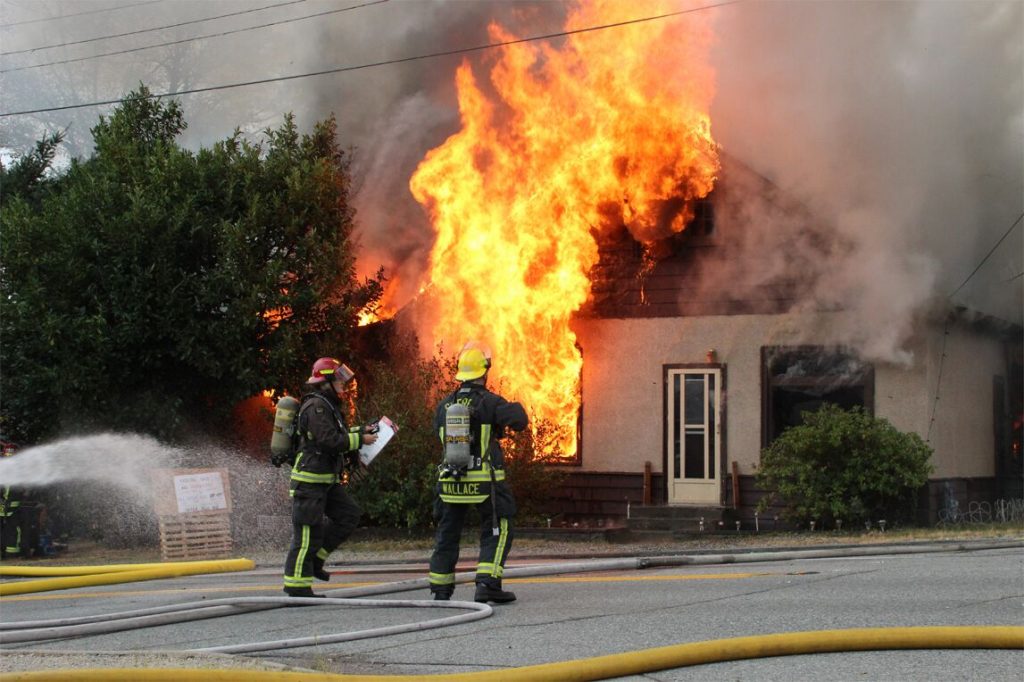Get the help you need right now 855-900-8437 Get Help Now
Get the help you need right now 855-900-8437 Get Help Now
August 6, 2019
You’re running late to shift, you’ve spilled coffee on your shirt and forgot your breakfast sandwich on the kitchen counter. Your day is off to a rough start.
These minor stressors could be the beginning of a bad day for some, but you’re a fire fighter. You let these stressors roll off your shoulders because you know that somewhere out there, someone is having a worse day than you are. While it’s good to let the small stuff go, don’t ignore your stress entirely. The build-up of all the stressors in your life can cause your physical and behavioral health to suffer.

A study by the Ruderman Family Foundation reported that in 2017, fire fighters were more likely to die from suicide than in the line of duty. In 2017, 93 fire fighters died in the line of duty compared to 103 fire fighters who died from suicide. Research indicates that 20% of fire fighters will develop post-traumatic stress disorder (PTSD) at some point in their career. Ignoring a mental health disorder can result in poor physical health and impaired decision-making abilities.
In addition, fire fighters may develop a substance use disorder while trying to cope with the occupational trauma and stress they experience on the job. Researchers recognized high rates of binge and hazardous drinking behavior in fire fighters. One study found that 58% of fire fighters reported binge drinking and 14% often engaged in hazardous drinking behavior. In that same study, researchers uncovered a depression rate of 11% in fire fighters compared to 6.7% of the civilian population.
Getting help for mental health and substance use disorders can be the difference between life and death. With more than 1,000 fire fighters surveyed nationally, 46.8% reported contemplating or imagining suicide at least once during their career. To gain a more accurate understanding of the problem, the International Association of Fire Fighters (IAFF) will launch a national suicide reporting tracking system in fall 2019.
In addition to thoughts of self-harm, fire fighters with substance use and mental health disorders can experience diminished work performance, which puts them, their coworkers and their community at risk.
In addition to occupational stress and trauma, fire fighters experience the same major life stressors as the general population — marital problems, divorce, parenting challenges, finances, aging parents and adjusting to retirement.
Whether it’s job, home or life-related, stress does add up. To survive in this profession and thrive into retirement, every fire figher needs a plan for self-care. What is yours?
PTSD and substance use disorders are serious and intervention can be the difference between life and death. Many fire fighters think PTSD is a sign of weakness, but firefighting is a tough job — both mentally and physically — so it’s okay to talk about challenges. There is no shame in seeking treatment for PTSD or substance use disorders. Call the IAFF Center of Excellence to learn more about treatment options and support. Telephones are staffed around the clock with professionals who understand and can help.
Medical Disclaimer: The IAFF Center of Excellence aims to improve the quality of life for people struggling with a substance use or mental health disorder with fact-based content about the nature of behavioral health conditions, treatment options and their related outcomes. We publish material that is researched, cited, edited and reviewed by licensed medical professionals. The information we provide is not intended to be a substitute for professional medical advice, diagnosis or treatment. It should not be used in place of the advice of your physician or other qualified healthcare provider.